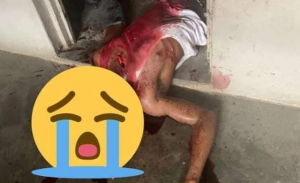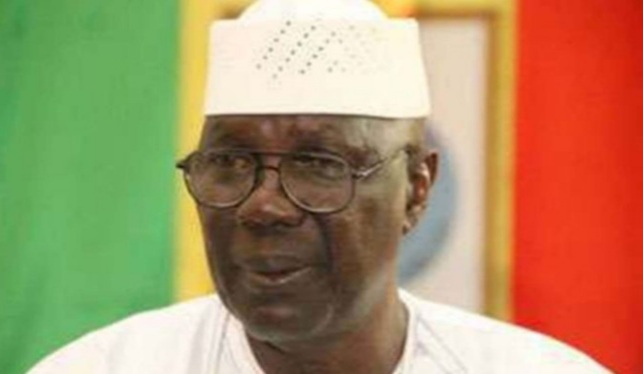By Dr. Godknows Igali
More poignantly, day-to-day, the crimson truth sinks deep, that “no man knows the day or the hour”. None! So the date 19th November 2020 may not elapse nippily in the memory of many Nigerians of present day. If for nothing, for the fact that one of the nation’s most fanatical patriots, Albert Egbaroghene Okumagba, suddenly checked out of this realm.
Born on the last year of baby-boomers (4th April, 1964), he was merely 56 years old at death; way too short from even the Biblical nethermost of “three-score and ten”. He was still bubbling, ebullient and characteristically of highest cognitive agility. And so, shock, pain, grief, unbelief, and even guilt were a small number of the extreme emotions that swamped in. Unflatteringly, from every part of Nigeria and around the world; for much more than most men of chattels, nobility, princes and even kings.
NATIONALIST OF SPECIAL GENRE
What made Albert or “Egba ” as he was also known outstanding, was not because he was an Economist of highest training at Universities of Ibadan and Lagos or the fact that he rose to the pinnacle of Nigeria’s financial services sector, becoming a household name of the country’s leading boardrooms. But for the single reason that he was doggedly patriotic to the cause of building a Nigeria, beyond what few other citizens believed that it should be. He was avidly nationalistic and bold in seeing that what Nigeria needed was for citizens like him, of like minds, despite totally contradictory circumstances to put in the last sweat, and where necessary drop of blood to building Nigeria.
At any given time, Albert was a moving encyclopedia of the true state of affairs in Nigeria including the actuality of our global standing. Yet, he was dismissive of pessimism, negativism and naysaying. Albert always saw the sunshine and rainbow after the storm of nation building. He will always conjure up reasons why all should share in his seeming deluded optimism about Nigeria and hope against despair, which loom from time to time. He was ready and confidently so, to labour in debates about Nigeria, even if it meant standing alone.
Albert had no boundaries, he was rather psychical and almost a clairvoyant mind. He never found limitation on substance, subject and field. Like the greatest minds of old, he meandered habitually away from economics and the world of money where he easily cut his teeth to dwell on politics, security, education, national integration, international relations and virtually every branch of knowledge and national life. He was voracious in thoughts and ideas that were well spelt out, as it is euphemistically said with many minor decorative features.
OBSESSION WITH EDUCATION SECTOR
Albert saw education, education and education as the singular liberating factor for the dismantling of the barriers and cleavages of mistrust, misapprehension, and primordial feelings of disharmony in such a multi-ethnic society as Nigeria.
Using his position in the financial world, he undertook various projects to promote education. First was his obsession with unity schools. He believed that the model of Kings College which the British colonial government built in 1909 as a tool to bring young Nigerians together was the best model to follow. Indeed, at the dawn of Nigeria’s independence when the Government of Prime Minister Sir Abubakar Tafawa Balewa and his Minister of Education Chief. Ajah Nwachukwu — piqued by the spate of mistrust, ignorance and inter-ethnic rivalry among members of parliament, further came up with what was called Unity Schools Federal Government Colleges. These started with the take off in January 1966 of three such schools in Warri, Sokoto and Okposi. Thereafter as part of General Yakubu Gowon’s effort to reconcile the country after Nigeria’s Civil War, additional schools were established in all the then 12 states of the federation in 1973. Also, special schools were created to promote the girl child education and later, Federal Government Technical Colleges were established in most states.
Albert insisted that such forms of education that bring young minds of Nigerians from across different zones into one was the best tool for unity, cohesion and togetherness. Having received his secondary education at Federal Government College Warri from 19751981 and later, the same prestigious, King’s College, Lagos in 1983 for Higher School Certificate (HSC), he insisted on revamping the lost glory of these unity schools. He was especially pained by the adulterated deviation from the original intentions through such practices as unbridled use of quota system, elitism, worse still, the total depreciation of infrastructure over the years. Of greater worry for Albert was the inability of the country to leverage on the broad nationalist upbringing of products of such schools.
TH
What did Albert do? First was the formation of an alumni association of all products of unity schools over the years spanning a period of over 100 years including those of Kings College and Queens College, Lagos, established in 1927. This effort led to the formation of Unity Schools Old Students Association (USOSA), on the 40th anniversary of the establishment of the three Unity Schools in 2006. His grandiose idea was to use such old students both as a vanguard to reinvent public sector education in Nigeria and repopulate the idea of such unity schools around the country, that is, at geopolitical, state, and even at local government areas. Albert proceeded with this by forming the organization, bankrolled the reunions at the Hilton Hotel Abuja. For the first few years, he ensured its proper takeoff even without seeking help from his high profile members who at the time included serving Governors, members of Government, business magnates, top political leaders and bureaucrats.
Next was the move which he made to float a bond to enable USOSA take over the running of the over 106 unity Colleges as non-profit corporate entities. That is, to operate them as businesses, and as such, free government from the colossal spending to keep the standards as originally intended, without corresponding results. He wanted to return the schools to be places where children from all over the country could come together, away from the apprehension of their parents, and find a home of worth.
With the typical penchant of several Nigerian officials for being averse to progressive ideas, Albert’s good intentions were shut down under the pretence of administrative bottlenecks or outright ‘bad belle’. The original intentions of unity schools therefore remained doubtful and the impact limited. On another score, what Albert wanted to avoid, that is, rich Nigerians moving their children to private schools which was becoming a fad at the time could not be avoided. Also, unity schools still remain, largel, shadows of their glorious past.
That notwithstanding, until the day of his passing, Albert never gave up, but continued to come up with new perspectives on how to reinvent public sector education. Similarly, until the clock stop ticking, he continued to strategize on how to capture Nigerians young through education, as a means of building a country of common purpose.
SLEEPLESS VISION ON THE NIGER DELTA REGION
With his ultra-nationalistic zeal to transforming Nigeria, Albert burnt the midnight oil conjuring all manner of paradigms, models and blueprints for inclusive growth and balanced development. Beyond his overloaded laptop, he moved around with files containing plans, with appropriate graphics and infographics on various subjects. Though Lagos-bred, his natural testing ground was his own Niger Delta and specifically Delta State. Beyond the Niger Delta Development Master plan developed under President Olusegun Obasanjo and launched in 2004, Albert developed his own variant for the region focusing on physical development, job creation, and industrial growth, focusing on oil, gas and agriculture. His thoughts were pristine on how nonpublic sector financial inflow, hedging and leveraging could be the driver for growth. This deviated from State Governments, woefully and unrepentantly trooping to Abuja for monthly Federation Account rations.
At least, during the South-South Economic Summit of 2009 hosted by Governor Liyel lmoke at the iconic Tinapa Resort, Calabar, Albert was vivacious and was at his game; bustling with ideas. Unfortunately, this pioneer regional initiative which was intended to hold a new pathway for national development which Albert midwifed under the watchful command of ‘Uncle’ Atedo Peterside has not been well followed up both at the South-South level such that even the BRACED Commission formed thereon, is a spectre of great ambition. Sadder, economic regionalism as a building block and stepping stone for the overall architecture of national economic growth remains scantly appreciated.
INCHOATE TASTE OF POLITICS
In tasting the pudding, Albert threw his hat into the ring in seeking political office as Governor of his own Delta State under the Peoples Democratic Party (PDP) in 2007. Like a scientist and inventor taken out of the cocoon of the laboratory, he canvassed his thoughts in a manner that was idyllic, civilized and enthralling. He focused his campaign on the mantra of issues, projects and programmes. Albert mobilized Corporate Nigeria and global capital market to glass case his forte and planned bearing. In the usual inopportunity and rebuff which many good men feel on entry into politics in Nigeria, his lofty plans and vision suffered stillbirth.
At the very embryonic level of political party primary, his ambition was shut down. Godfatherism, undemocratic “adoption and harmonization”, big money, took over. This deprived his people in Delta State the best of leadership and Albert the opportunity to serve. If proper democratic processes had been followed, Albert would surely have won both the party primary and the general election to become the Governor of Delta. His ethnic nationality, Urhobo, are by far the majority group in the very diverse and heterogeneous state. Beyond these, his family tree, as the first son of the elegant and famed Chief Daniel Okumagba— a frontline politician and community leader of special class was a big deal. It is recalled that as the senior Okumagba gradually retired from active public life, he returned home to housekeeping roles, becoming the most prominent President-General of the Urhobo Progressive Union — one of Nigeria’s most renowned pan-national bodies formed in 1949. Under normal circumstances, non could have defeated the revered Chief Okumagba’s son in an election in Urhoboland or in Delta State.
Unfortunately, Albert’s positive point became his undoing such that they plotted to minimalize him. This experience is a recurring decimal and the poor, already marginalized electorate across Nigeria continue to have no choice whatsoever to redress such show of tyranny at the leadership recruitment process. Then left jilted, financially fleeced and relegated, with the exception of few, such victims of political exclusion are wont to diverting attention to other preoccupations; to the detriment of the common good.
FINANCIAL MIDAS TOUCH IN ACTION
In his own chosen area of Finance, Albert dominated the sector like a colossus, leaving his imprimatur in almost every existing financial institution in Nigeria. Having cut his teeth as Manager and Head, Mergers & Acquisitions of the defunct Centre Point Merchant Bank PLC, he acquired maturity and focused in that area. He became the financial arranger for almost every existing top operators of the private sector. He helped to arrange monies and complex acquisition deals, assisted dying companies to resuscitate using his network and so doing rearranged the Nigerian private sector in forming more formidable and viable companies and operatives.
In course of time, he floated the company, BGL Plc. Within the data room of Bloomberg, the world’s leading media and financial conglomerate, BGL is identified as “offering financial advisory, corporate finance, private banking, and asset management services to institutional, corporate, government and ultrahigh net worth clients.” Unknown to many, his various platforms within BGL Group , that is BGL Private Equities Ltd, BGL Capital, BGL Asset Management, BGL Securities Limited actually registered as a bank, specialized in helping others to stay afloat. Another little known fact is that he formed BGL jointly with three other similarly quick-witted friends who were equally rising stars at a time when they were all in their thirties. Suffice it to mention that billionaire and philanthropist Tony Elumelu, one of his original partners was another rising Turk in the banking and later branched off to form several other audacious financial institutions which finally metamorphosed into the ultimate flagship – United Bank for Africa (UBA).
At the peak of his career, between 2014 and 2015, Albert rose to become the President of his professional body, the Nigerian Chartered Institute of Stock Brokers, of which he was a fellow. Much earlier in his professional life at Centre Point Merchant Bank, he already achieved and got elected as Chairman, Association of Issuing Houses of Nigeria (AIHN).
ALBERT’S ACHILLES HEEL
As it turned out, Albert’s own primary area of calling and expertise, which is financial services, became his ruination. His experience draws great parallels with that of Napoleon Bonaparte. At the age of 33 years, Napoleon had conquered the entire known world and was still hungry for new adventures and new territories to conquer. By the end of the day, under rather unique circumstances, Napoleon was defeated, not in faraway Asia, where strong Chinese military armada or India with the untiring fighting machine of the Khans nor against the ferocious Ottoman army. It was in Waterloo, just few kilometres from his base in France.
The crash of global stock prices in 2008, like a volcanic eruption continued to result in after shock, especially along the fault line. Worse still, with global economic meltdown within 2012-2013 period, nearly all sectors of the real economy around the world were affected. Without getting into the traditional polemics between economists, the economic fortunes of whole countries like Greece floundered, occasioning frenzied intervention packages of diverse forms. As such, the impact on the global financial market was particularly devastating as stock prices including from NASDAQ and most markets crashed to their lowest points since after the Great Depression of the early 1930s. The impact on a fragile Nigerian economy that is dependent on a single commodity – Crude Oil – was enormous.
This had a collateral on stock markets which led to market crash. Like most Stockbrokers, Albert’s phenomenal rise had predicated on “paper money” as a result of prolonged period of a bull market when stock prices soared amidst a rather exaggerated macroeconomic outlook. Truly, this was characterized by national grandstanding on Nigeria becoming the largest economy in Africa, without much impact on the real sector and food on the table of ordinary citizens, while priceearnings seriously dwarfed long term averages. So, stock prices in Nigeria crashed irredeemably and one of the biggest participants or rather leaders in the market became overexposed
The impact was calamitous and then ‘wahala’ followed. The bubble busted. BGL crashed along.
Albert had no time to recline to a safety net or the usual multitier safety system. Like a sacrificial lamb, he allowed himself to go under to dampen and shield the impact on his many clients. As is the parlance in the industry, Albert had gone bust having hit the “bottom line”! He sacrificed himself for most investors. But that was not enough for some shylock stockholders and nominees to follow through with their pound of flesh. He was placed on the ice, from operating in the capital market by the Securities and Exchange Commission (SEC), which since 1979 when it was established had continued to regulate the industry. By 2017, the Council of the body went on to “ban for life”, Albert’s baby, BGL, which today takes credit for some of the country’s existing big business concerns. Along the line, other stony and emotionless enforcers, Police, Economic and Financial Crimes Commissions (EFCC), Independent Corrupt Practices Commission (ICPC), Magistrate Courts, etc. pounced on poor Albert, leaving an aftershock of unbelief, and withdrawal. A kind of “na so the world beee”? In the garrulous media trial reminiscent of Nigerian anticorruption agencies, Albert’s image was circulated spontaneously and, like any good Nigerians, so castigated, judgment passed on him even before formal
charge and trial.
A WORTHY DISIDERATA
Albert showed himself in the parlance of Oxford University Economist, Kate Raworth as a “Doughnut Economist”. So, his practice of Economics sought to create a just, sustainable paradigm to achieve development. This was amply reflected in his composite activities in the economic space and writings which touched on all aspects of the national and global space. His economic forecasts, through his BGL Financial Monitor and writings, were apt and unassailable. He also served on several Federal Government committees and work groups to make Nigeria work.
Despite all these he experienced the rocky coursing of life. From gracely heights, he found himself in the words of Archbishop Benson Idahosa at “zero hour” — the type which the lawgiver, Moses, experienced in descending from pharoanic olympus to the obscurity of Jethros’s farm. Yet, Albert existed, beaming with poised and bearing no ill-feeling towards any. Rather, he was quick to take responsibility for everything and absolving all. Seeing the sunny side of Nigeria’s tomorrow, he prepared to relaunch back to active life. But God has a better plan.
So, Albert might have exited physically, yet, his impact in the hearts of men and the volumes of thoughts remain with us.
After all, that’s the sterner stuff of most heroic nation builders, – debonair, patriotic, brave, selfless, virtuous, and undaunted – rests aglow with the living from age to age.
Godknows B. Igali is an award winning author and retired Federal Permanent Secretary

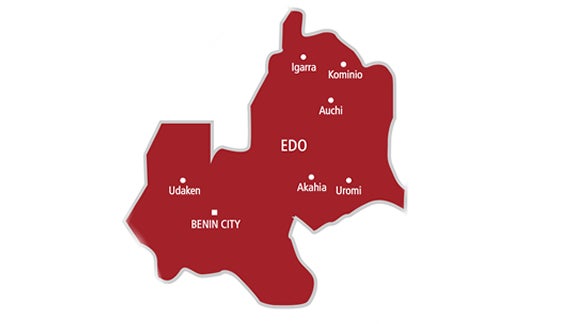

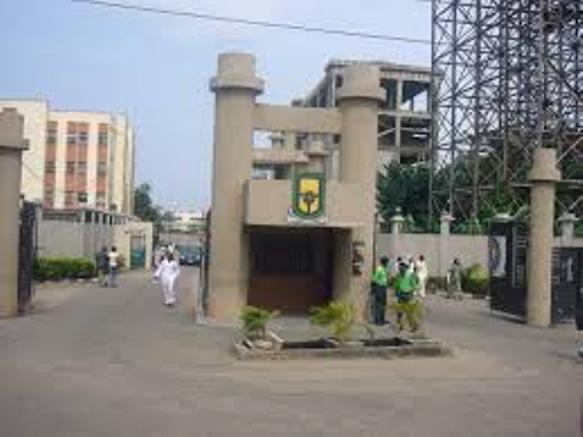
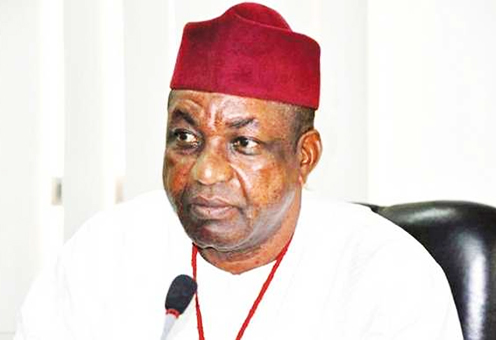
![[Trending] Covid-19: How US doctor meets death in Nigeria](https://thenewsguru.ng/wp-content/uploads/2021/01/071144CC744C4C3A8FD8B9D459610117.jpg)
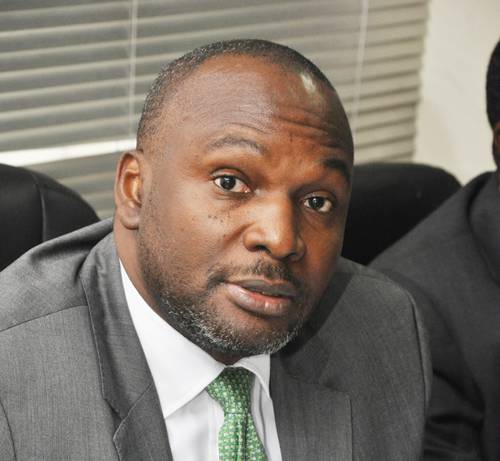
![Trending: Akwa Ibom corper allegedly hacks boyfriend to death [Graphic footage]](https://thenewsguru.ng/wp-content/uploads/2021/01/ErYOBfTW8AEgDbS.jpg)

